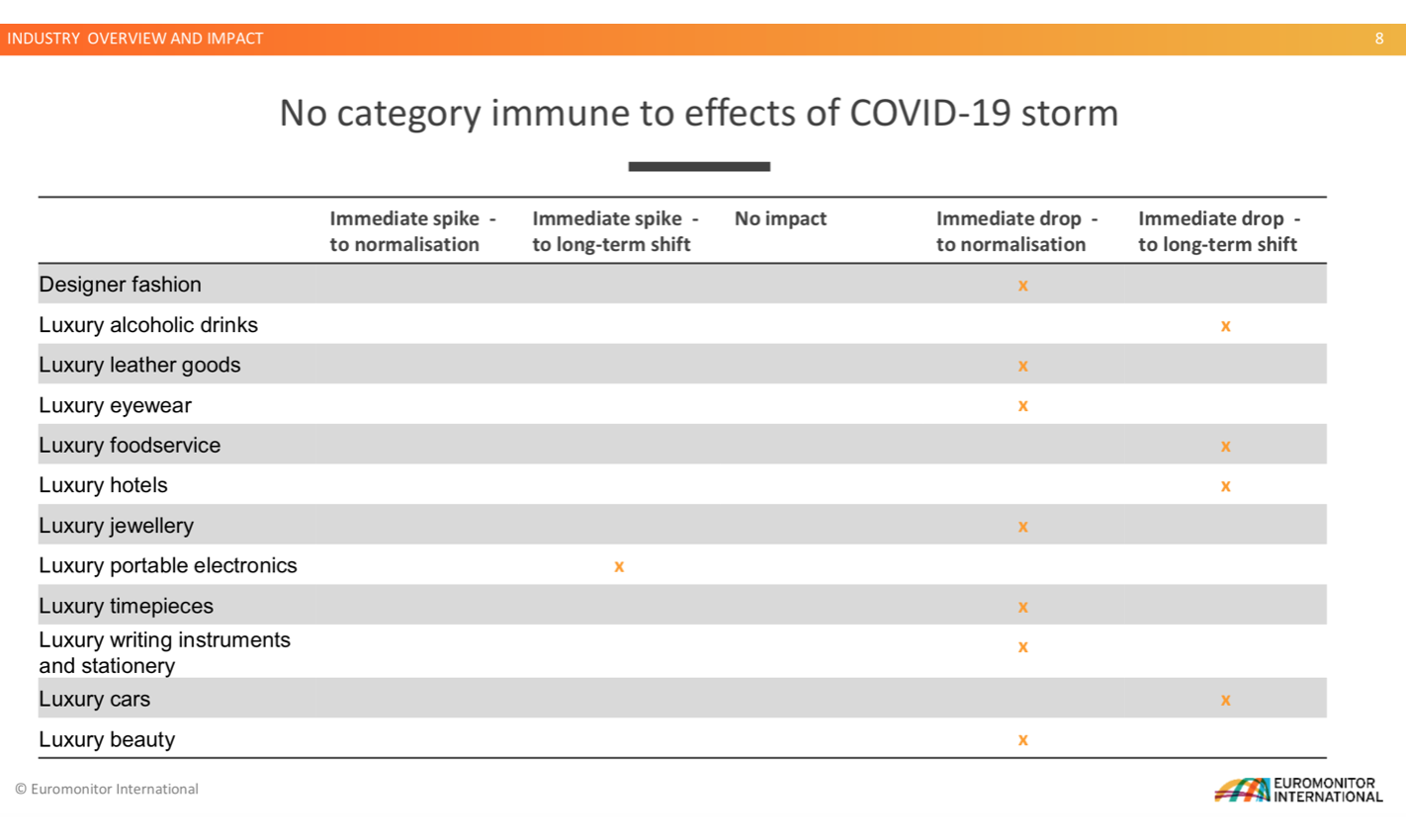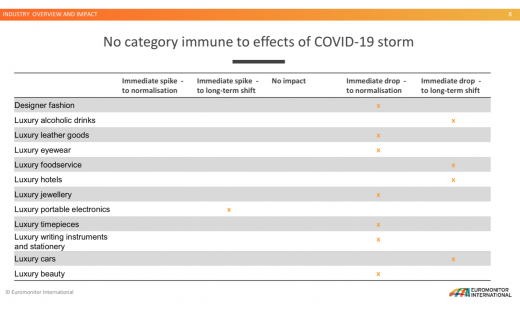The Cost of Coronavirus: Evaluating the Key Industries in Decline Following the Pandemic
With the long-term effects of the COVID-19 pandemic set to live with us for years to come, an increasing number of industries are beginning to feel the pressure of lost revenue and business.
While there have been many instances of governmental interventions and emergency loans arranged to help businesses in the short-term, many companies are still unaware of when they can realistically begin to see tangible evidence of a recovery.
The array of industries that have been adversely affected by Coronavirus is vast and too voluminous to highlight in their entirety. However, it’s important to take stock of the key areas that will experience severe difficulty in mapping out recovery when a return to ‘normality’ takes place.
With this in mind, here’s an evaluation of the industries that are set to experience a sustained decline in the shadow of the COVID-19 pandemic:
Luxury Goods
Luxury filters into a vast array of industries, and it’s forecast to be among the hardest-hit markets as the world begins to recover from the COVID-19 pandemic. With a projected 18% drop in market size, luxuries will be the worst impacted among all FMCG (fast-moving consumer goods) markets, according to Euromonitor International.
Sadly, no luxury category will be immune to the pandemic-influenced recession that’s set to sweep the world. Sectors such as designer fashion, jewellery and watches will be expecting severe drops to normalisation.

(Image: Luxury Society)
The chart above shows that other categories, such as hospitality, automobiles and alcohol can expect to see an immediate drop followed by a long term shift. This will pose new challenges for hotels, and fine dining restaurants and many businesses will need to reconsider their respective approaches in order to survive.
However, it’s worth noting that luxury electronics will see an increase in adoption, due to continuous demand and a newfound desire for employees to use technology to work from home.
Entertainment
The world of entertainment has been severely affected by the pandemic, with widespread losses in terms of production and live audiences.
When it comes to music, live events are worth as much as $ 27bn to the industry. With social distancing restrictions firmly in place, this revenue stream has been shut down – leaving artists and record companies alike looking for more digital ways of arranging performances.
In the UK, the near-complete shutdown of the country’s billion-pound TV and film industry could lead to significant scheduling issues for years to come.
The process of producing television shows will change, too. With live TV audiences set to vanish from our screens, the production of shows will change drastically. On-set production will also face problems, with social-distancing measures creating issues in makeup and stretching as far as catering.
Elsewhere, theatres will have to rethink capacities in the short-term – leading to issues with the running costs of expensive productions.
The Cost of Charity
Worryingly, charities have found themselves adversely affected by COVID-19. The role that charity has played in ensuring that vulnerable people have been given the right level of support during the pandemic has been significant. But the charitable sector, whether it’s food banks or mental health support, have begun to feel the effects of the financial squeeze.
In the UK, well-known charities such as Oxfam and Age UK have been forced to put 70% of staff on a governmental furlough scheme. While others suffer from having a business model that isn’t designed to survive prolonged periods without income.
Many charities have been forced to look into operating online, which can be a daunting but essential way of crafting an operational business model in adverse times.
Ailing Air Travel
Unsurprisingly, the aviation industry has suffered heavy losses due to the shutdown of the business. In fact, it was one of the very first sectors to apply for government bailouts after borders were closed and citizens were imposed with travel bans.
In the US, Boeing’s CEO, Dave Calhoun, stated that it’s “likely” that a major domestic airline will go out of business as a result of the COVID-19 fallout.
Elsewhere, Virgin Atlantic has bid for a UK government bailout for hundreds of millions of pounds, claiming that it will be unable to operate without the windfall.
Ferrying
Ferrying stands as another mode of transport that’s suffered in the wake of COVID-19. Steep drops in the number of passengers mean that firms have been forced to cut back on their services which have led to risks that essential food and medication supplies could fail in being imported and exported respectively.
P&O Ferries has suspended its passenger services, which carries around 15% of the goods imported to the UK annually – including food and medicine. The company has also furloughed over 1,000 staff owing to the cutbacks.
The company has announced that it needs £257m to ensure its long term survival and plans to ask the government for £150m to help reach the stated figure. However, P&O Ferries won’t be the only company desperately searching for a significant bailout. With so many businesses within myriad industries eagerly seeking financial security, and with a recession looming, it seems certain that the hardships will carry over to a wide range of industries.
Business & Finance Articles on Business 2 Community
(29)


